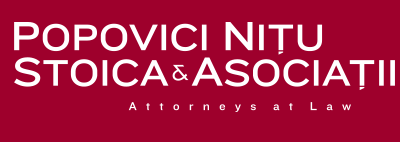- About Us
-
Expertise
- Banking & Finance
- Capital Markets
- Competition & Antitrust
- Corporate & Commercial
- Data Privacy
- Employment & Pensions
- Energy & Natural Resources
- Gambling & Betting
- Healthcare & Pharmaceuticals
- Insurance
- Intellectual Property
- International Arbitration
- Litigation
- Mergers & Acquisitions
- Project Finance/PPP, Concessions & Infrastructure
- Public Procurement
- Real Estate
- Restructuring & Insolvency
- Sports Law
- Tax
- Telecommunications, Media & Technology
- Transports & Logistics
- White Collar Compliance & Defense
- Our team
- Careers
- Publications
- News and Press
- Contact
Press Reviews
Romanian real estate market faces uncertainty and opportunity: Legal experts weigh in
CIJ EUROPE recently explored the outlook for Romania's commercial real estate sector amid changing economic and political conditions. Three prominent legal professionals - Daiana Assoum of Stratulat Albulescu, Florian Nițu of Popovici Nițu Stoica & Asociații, and Sorin Aungurenci of Biris Goran - offered their perspectives on the challenges and opportunities ahead, as well as the legal approaches investors and developers should consider to navigate the evolving landscape.

Florian Nițu of Popovici Nițu Stoica & Asociații, Daiana Assoum of Stratulat Albulescu and Sorin Aungurenci of Biris Goran
While perspectives varied, all three lawyers acknowledged both challenges and opportunities ahead, underscoring the importance of careful legal planning.
Cautious Optimism Meets Structural Risks
Daiana Assoum sees a "cautiously optimistic" future for Romania's real estate sector, buoyed by the resilience the country has demonstrated in recent years. "Logistics and retail remain the strongest segments, with Romania's strategic position supporting continued demand for warehousing and supply chain facilities," Assoum noted. She pointed to retail parks and shopping centres coexisting as consumer preferences evolve, while the office sector shows gradual recovery as occupancy rates improve.
Importantly, she highlighted Romania's comparative stability in property yields and operational costs, factors she believes make it attractive to long-term investors seeking growth in a less competitive environment. "We expect Romania to remain a stable market, with ample room for expansion across asset classes," she said.
In contrast, Florian Nițu offered a more sobering outlook. "Romania faces challenges similar to those that led to the complex crisis of 1999," he warned, citing recent political instability and potential economic fallout. He drew parallels to the 2008–2009 financial crisis and raised the possibility of Romania's investment grade rating slipping into junk status, which could drive financing costs even higher. "This could lead to a paralysis in the real estate sector," Nițu cautioned, calling for political, economic, and institutional stability as a precondition for market recovery.
Sorin Aungurenci maintained a measured optimism, pointing to continued investor interest in logistics and industrial assets. "Romania's position within the EU and shifting European supply chains are sustaining demand," he explained. While the office sector is adjusting to hybrid work trends, well-located buildings continue to attract tenants, and retail is stabilizing in secondary cities. "Investor confidence will depend on regulatory predictability," Aungurenci noted, emphasizing the importance of transparent permitting and stable legislation to support long-term growth.
Legal Strategies for an Evolving Market
When asked how investors and developers should position themselves, all three lawyers emphasized the central role of legal strategy in mitigating risks and unlocking value.
Assoum underscored the importance of robust due diligence extending beyond title verification to zoning, urban planning, and permitting risks. She advised incorporating safeguards into contracts to account for potential approval delays. "We're seeing a move away from standard joint ventures toward hybrid structures that balance control with flexibility," she added. Lease agreements also require careful alignment with development obligations to protect long-term asset value and reduce disputes.
Nițu urged a reassessment of financing arrangements, suggesting some projects might benefit from shifting from bank loans to investor capital or joint venture structures. "Whoever moves quickly to address challenges or secure deals will be better positioned," he said, forecasting an increase in corporate claims and legal disputes as market pressures intensify.
Aungurenci recommended integrating environmental compliance and sustainability considerations into legal frameworks from the outset. "Institutional investors and international tenants increasingly expect leases and contracts to reflect energy efficiency and sustainability standards," he explained. He also highlighted the need for vigilance over legislative changes in urban planning, construction, and tax policy, warning that regulatory shifts could materially affect project viability. Establishing strong local partnerships and retaining experienced counsel were among his recommendations for reducing uncertainty and navigating administrative processes.
Balancing Risk and Opportunity
Despite differing views on the scale of upcoming challenges, all three experts agreed that legal foresight and proactive risk management will be crucial for investors and developers operating in Romania. Whether through adjusting financing structures, strengthening due diligence, or embedding sustainability into contracts, market players will need tailored legal strategies to weather potential volatility while capitalizing on Romania's continued growth potential in logistics, retail, and industrial real estate.
As the market responds to both local and global forces, the next few years will test the adaptability of investors—and their legal teams—as Romania charts its course through economic uncertainty and evolving regulatory landscapes.
Download Article










